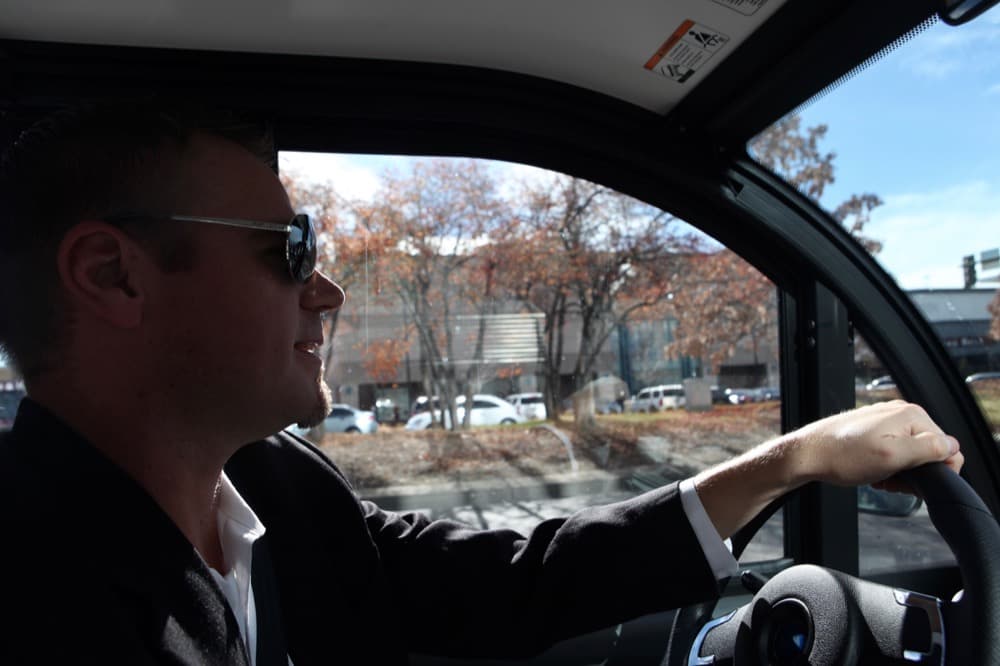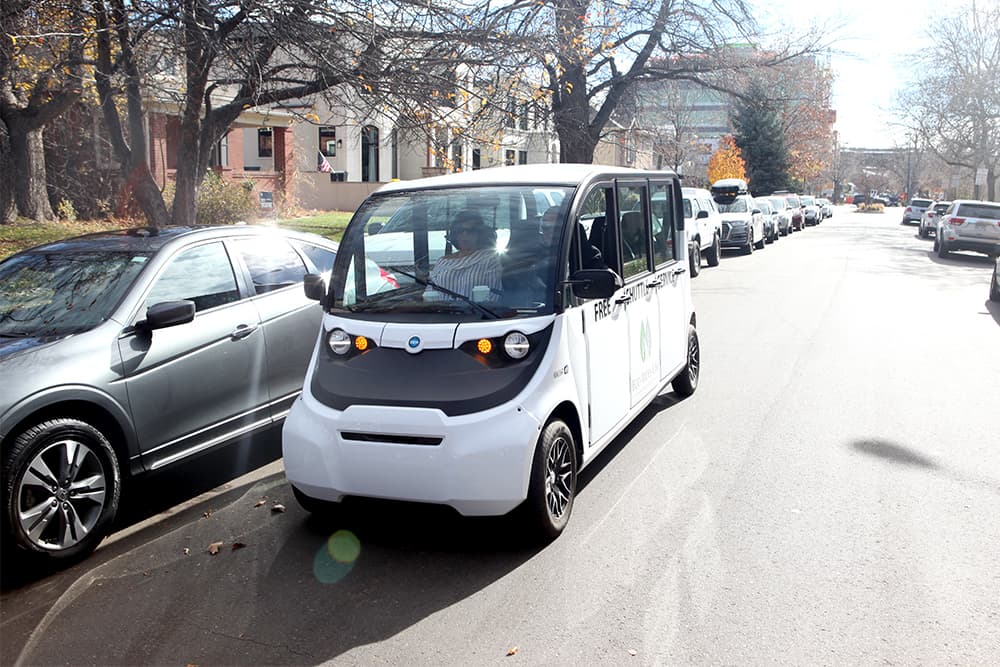
Mike Sweeny lives in Denver driving hell, and he loves it.
The California-bred marketing guy is driving a six-seat electric car through Cherry Creek on a sunny morning. At every stop sign, he checks three different directions for oversized SUVs, lackadaisical teens and elderly pedestrians. This happens a dozen times on a typical loop through the boutique neighborhood.
Their vehicle is an all-electric Polaris GEM. It's got all the upgrades -- heat, air, doors, TV screens -- and it sounds like a giant remote control car as it climbs to its maximum speed of 25 mph.
As Sweeny swings it around a corner, an infuriatingly common sight fills the oversized windscreen. This particular street is completely blocked by a construction crane.
"It is such a headache," he tells his three passengers. And it's where he sees his opportunity. "This is the purpose of Eco-Rides, right here."
Eco-Rides USA is the free shuttle service that Sweeny launched this year with cofounders Miles Malone and Anna Rodriguez.
It's one of a number of hyper-local transportation services that have deployed in Denver this year, including the three-wheeled electric "eTuks" that circulate Broadway and River North on certain days.
Eco-Rides is perhaps the most ambitious of the bunch, with its six-seat vehicles -- they look like futuristic, pumped-up golf carts -- patrolling for passengers all day, every day in Cherry Creek. Extra-large batteries keep the two shuttles running for 12 hours on a single charge.

The idea, of course, is to give people an easier way to navigate the ever-more crowded blocks between University and Colorado boulevards.
"There's been a tremendous amount of growth in this area, and there's challenges with parking here on the street as well. That lends itself to an opportunity to operate in this area," said Rodriguez, who has a background in human resources.
"Our goal is to be the free version of Uber, Lyft in a designated service area," Sweeny said. And the community benefits, he argues, because a shuttle bus can keep automobiles off the road. In contrast, Sweeny points to the rows of Uber and Lyft cars that occasionally idle outside hotels, waiting for passengers.
Eco-Rides' business model is to sell advertisements on the 10-inch screens in the vehicle and on the exterior of the cart itself, with rates for the video ads starting around $250 a month -- far cheaper than most physical advertising space.
Up to 150 people might ride in the free vehicle on a good day, Sweeny said. Most simply wave it down and hop in, while some schedule ahead for a pickup. The five-month-old service hopes to add an app and start running additional shuttles on fixed routes.
Hotels and apartment buildings have been a strong source of growth, but most riders still need a little convincing.
"You'll go 15, 20 minutes with nobody," Sweeny said. "You need to get one person in the cart, and then it's a snowball effect."
And that's what he's hoping for. While Cherry Creek was the only neighborhood to express interest in the service initially, Sweeny says that he's hearing more and more inquiries from communities around the city.
"We're becoming a community amenity," he said. And while he still doesn't like driving through Cherry Creek, it's a sacrifice he'll make for now.












